Native American chairman says tribe would feel 'tremendous effect' of Dakota Access Pipeline shutdown
Oil money allowed MHA Nation to build schools, a judicial center, a drug treatment center and more, tribal head says
Native American tribal chairman on why his tribe backs Dakota Access Pipeline
The Mandan, Hidatsa and Arikara Nation Native American tribe says its fracking oil revenue helped it build schools and a judicial center, maintain roads and treat addiction among its members.
NEW TOWN, N.D. – The Dakota Access Pipeline (DAPL) is one of the most controversial energy projects in the United States, as it's been the subject of years of environmental protests and litigation that's now reaching the Supreme Court.
Protests by the Standing Rock Sioux, whose reservation straddles the border between North Dakota and South Dakota, produced some of the most high-profile voices in the battle. And the tribe, which says the pipeline puts its water and land at risk of environmental harm, is a party in litigation over environmental review of the pipeline project, which is owned by Energy Transfer of Texas.
But just a few hundred miles north in New Town, N.D., the Mandan, Hidatsa and Arikara Nation, also known as MHA Nation or the Three Affiliated Tribes, vehemently supports the pipeline's continued operation.
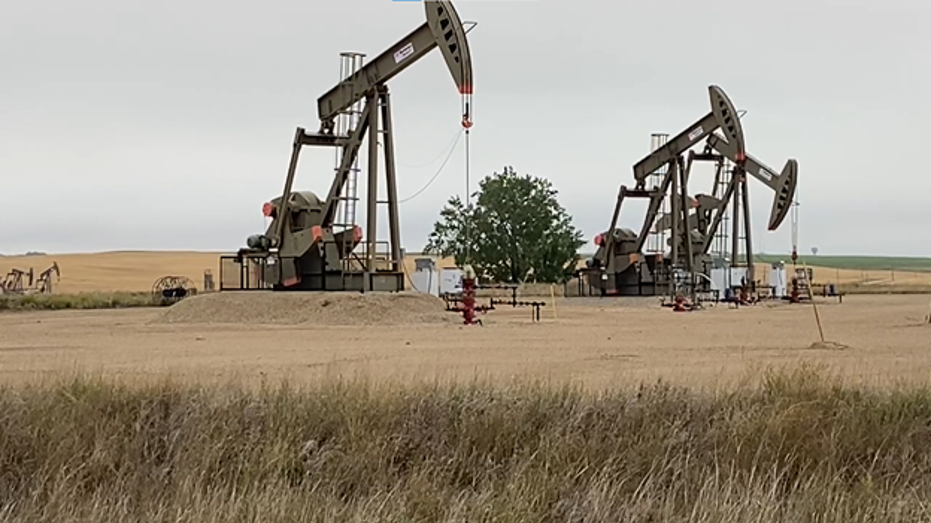
Oil well equipment on the Forth Berthold Indian Reservation near New Town, N.D. MHA Nation produces about a quarter of North Dakota's annual oil output. (Tyler Olson/FOX Business)
HOUSE REPUBLICANS ASSAIL BIDEN OVER ‘ANTI-AMERICAN ENERGY POLICIES’ AS GAS PRICES SURGE
That's because as fracking made oil deposits throughout North Dakota more accessible starting in the late 2000s, MHA Nation joined in on the state's oil boom and now brings in hundreds of millions in oil revenue from those resources.
"We're a tribe that was recognized as an aboriginal trade center for thousands of years, so economic development, capitalism, we're not strangers to that," MHA Nation Chairman Mark Fox told FOX Business. "For thousands of years, we traded and established an economy with other tribes."
North Dakota saw its oil production increase from 45 million barrels in 2007 to 525 million in 2019. And MHA Nation's Fort Berthold Indian Reservation accounts for a quarter of that production.
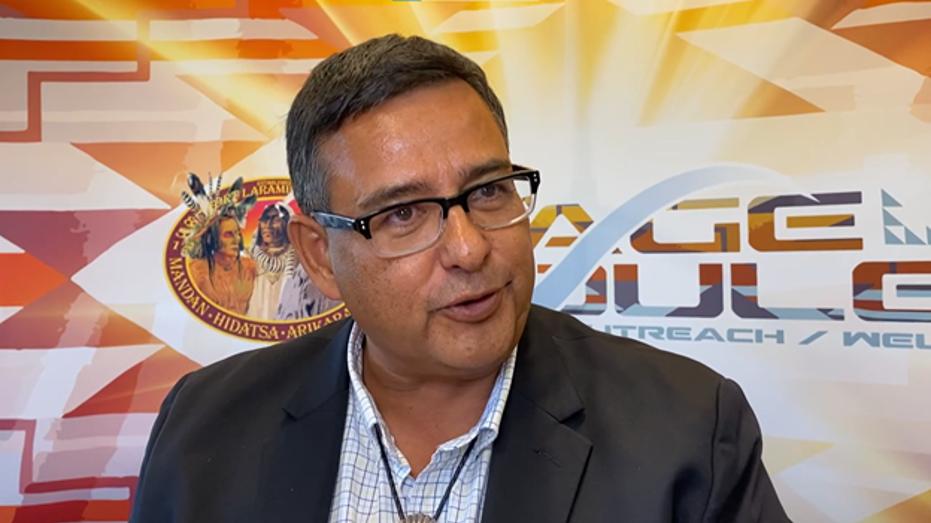
MHA Nation Chairman Mark Fox speaks with FOX Business at one of the tribe's outreach centers in Bismarck, N.D. (Tyler Olson/FOX Business)
In 2020, 60% of MHA Nation's oil traveled through the Dakota Access Pipeline. Amid lawsuits relating to the pipeline in the past 12 months, now less than half of the tribe's oil travels through the pipeline. But Fox says it's still a significant amount whose loss would hurt the tribe.
"If there was going to be a complete shutdown of DAPL, there was going to be a tremendous effect," Fox said. That's why MHA Nation weighed in on the Standing Rock Sioux Tribe's case against the pipeline earlier this year.
In an April declaration in D.C. District Court, MHA Nation estimated that a DAPL shutdown would cost the tribe $160 million over one year and $250 million if a shutdown lasted two years. Further, the MHA Nation declaration said it would expect an additional five traffic deaths among its members per year if the pipeline were shut down due to increased need for trains and trucks to move its oil.
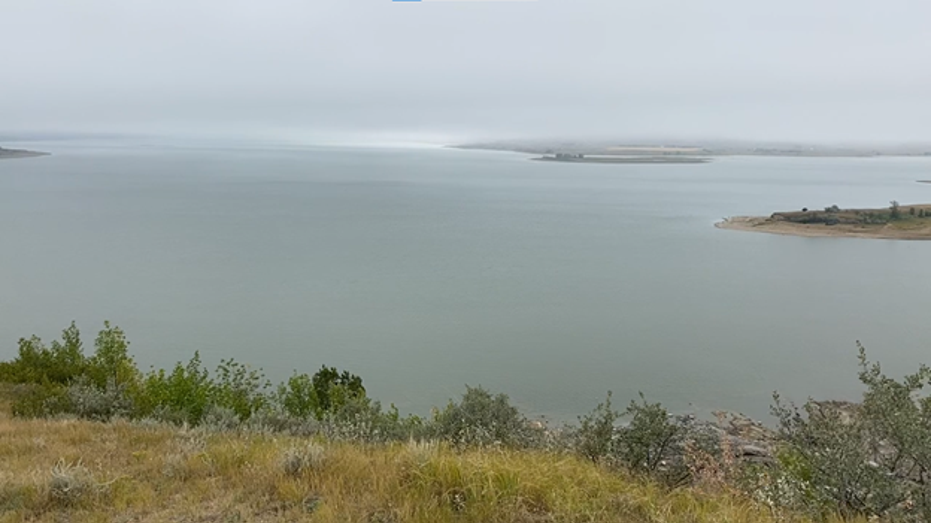
A view of Lake Sakakawea from Crow Flies High Butte on Fort Berthold Indian Reservation, the home of MHA Nation. (Tyler Olson/FOX Business)
"We support a tribe's right to – Standing Rock, all along this time — we've always said that's their right to, you know, contest or challenge impacts to their nation by a pipeline being very near their borders and possibly impacting their water," Fox said. "But it's also our right at MHA to develop our energy resources. They're also trust assets, just like water's a trust asset … So we just felt it was time that we had to [make it known] to a court or a judge or anybody else making decisions, that we are going to suffer some negative impacts and consequences."
Fox told FOX Business that MHA Nation's development of its oil resources is about far more than simply bringing in money.
RISING GAS PRICES HINDERING CONSUMERS' BUYING POWER, INDUSTRY EXPERT SAYS
"We're trying to restore or regain that former intertribal trade that we had and economic development position we once had," Fox added. "We have a proud history, although, like many other tribes, a very tragic history in many ways as well."
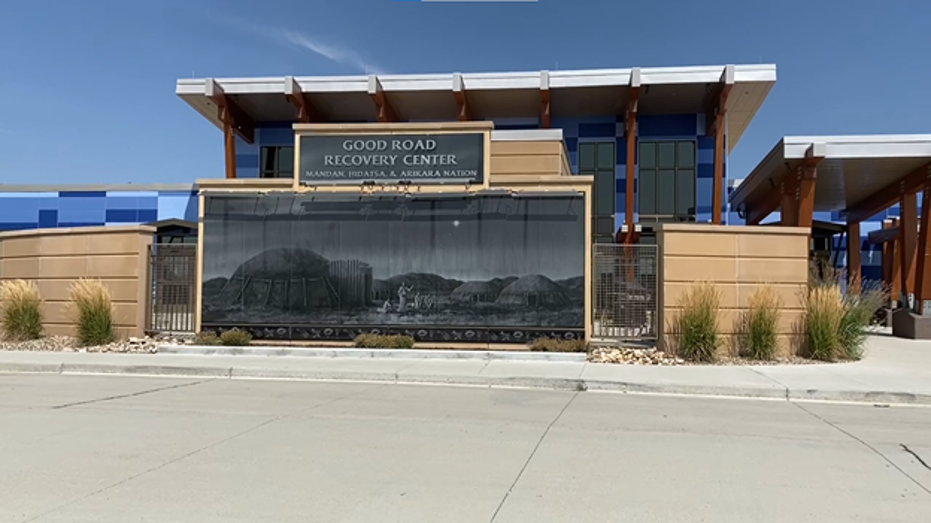
The Good Road Recovery Center, built by MHA Nation with oil money in Bismarck, N.D. Native American tribes are hit hard by the opioid epidemic. (Tyler Olson/FOX Business)
Fox listed epidemics like smallpox, displacement from their lands and failed American policies as some of the hardships the MHA Nation has had to overcome.
"In one particular year, we went from 50,000 combined to less than 5,000 people – lost 90% of our population in a year and a half in 1780-81," Fox said. He also said the building of a dam on the Missouri River in the 1950s to create a reservoir called Lake Sakakawea was a major blow to MHA Nation.
"They built a dam and flooded our lands," Fox said.
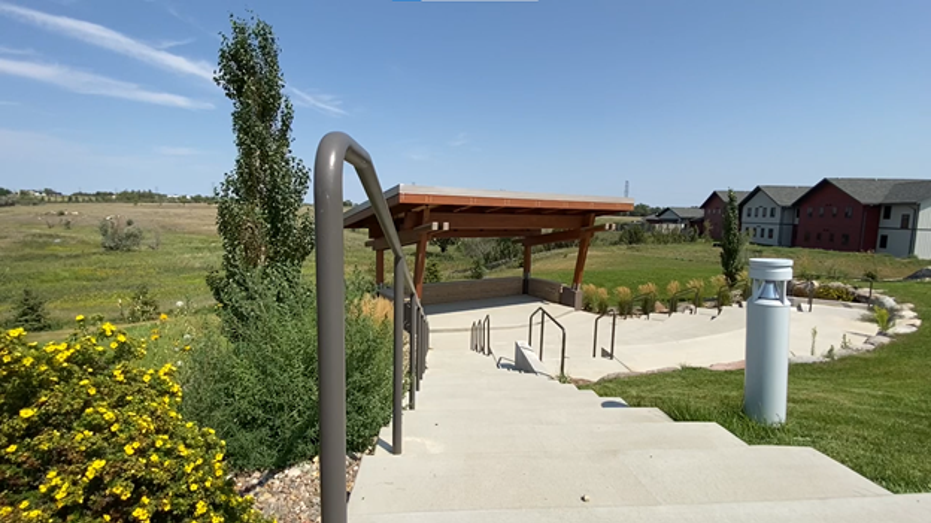
A small outdoor auditorium at the MHA Nation's Good Road Recovery Center for drug addiction treatment at its outreach center in Bismarck, N.D. The recovery center was paid for with the tribe's oil money. (Tyler Olson/FOX Business)
Despite all this, Fox said, MHA Nation is doing what it can in the present to help its members. And the oil money, which makes up 85% of the tribe's revenue, is making much of that possible.
"We will have three brand new schools completed in the last three years that is over $100 million worth of schools," Fox said. "We're talking hundreds of millions of dollars in road development … We're insuring about one-third of our people … with health insurance today that they otherwise wouldn't have and have to rely on the Indian Health Service."
GET FOX BUSINESS ON THE GO BY CLICKING HERE
Fox said the tribe has also used oil money to build out its judicial system, cut crime rates and reduce pollution on its land.
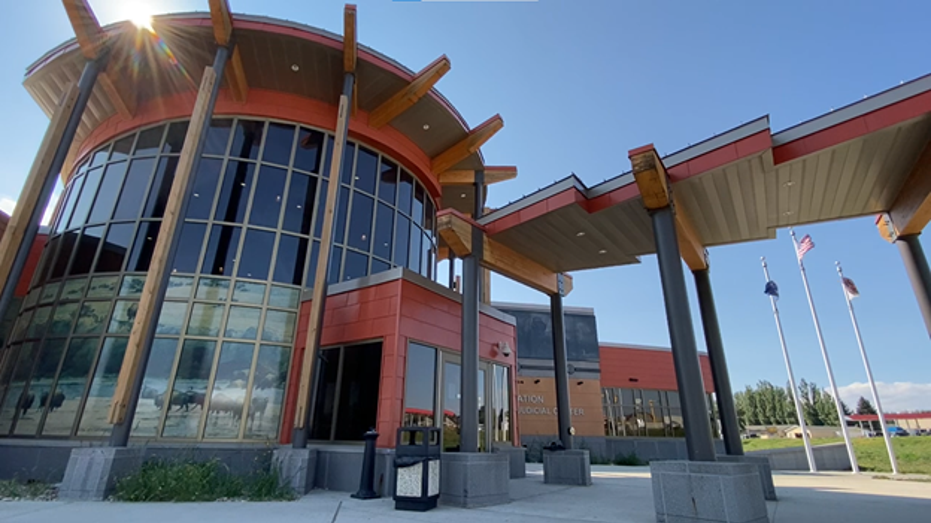
MHA Nation Public Safety and Judicial Center in New Town, N.D., on the Fort Berthold Indian Reservation. The center was built using the tribe's oil money. (Tyler Olson/FOX Business)
But one of the most important uses of the money, Fox said, is an inpatient-outpatient drug addiction recovery center at one of the tribe's outreach offices in Bismarck, N.D.
Native American tribes are hit particularly hard by the opioid epidemic, and MHA Nation is no exception. The tribe approved two state of emergency declarations in 2020 – one on COVID-19 and another for opioids.
"We now have the revenue to do something about the problem, to stop the dying and killing of our people by illegal drugs," Fox said.
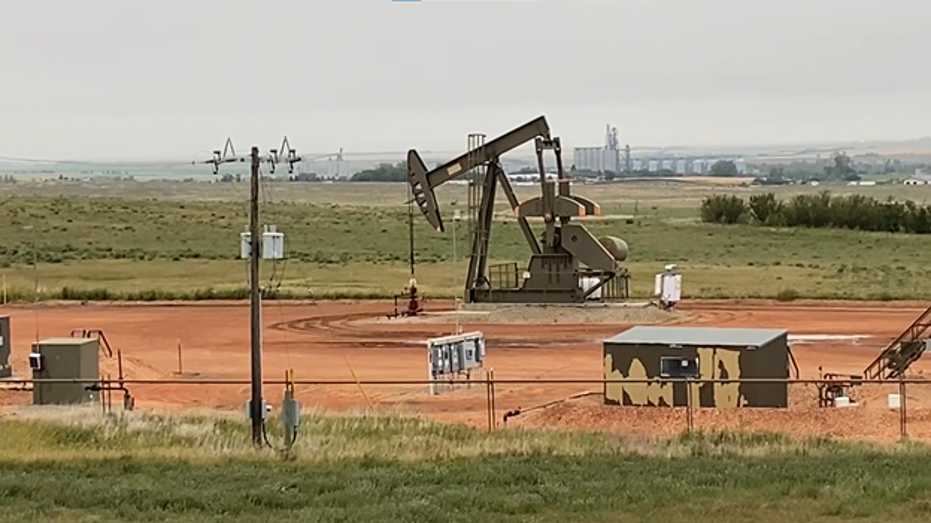
An oil well on the Fort Berthold Indian Reservation near New Town, N.D. MHA Nation supports the continued operation of the Dakota Access Pipeline. (Tyler Olson/FOX Business)
CLICK HERE TO READ MORE ON FOX BUSINESS
Fox acknowledged that there will always be trade-offs and environmental risks for MHA Nation as it develops its oil. But after gaining experience and taking years to tweak regulations, he said, "The positives now drastically outweigh the negatives in our estimation.
"We really don't have a choice. If our goal is to regain what we once had, is to reestablish our economy, is to undo the socioeconomic poverty we suffered for the last 150 years … and build an economy that doesn't depend on the federal government," Fox said.
"There's pros and cons. There's good and bad. But if we do this right, there'll be more good, and we take our destiny into our own hand. We'll self-determine ourselves, and we'll rebuild what we once had again, and we'll have a better future," Fox said.





















